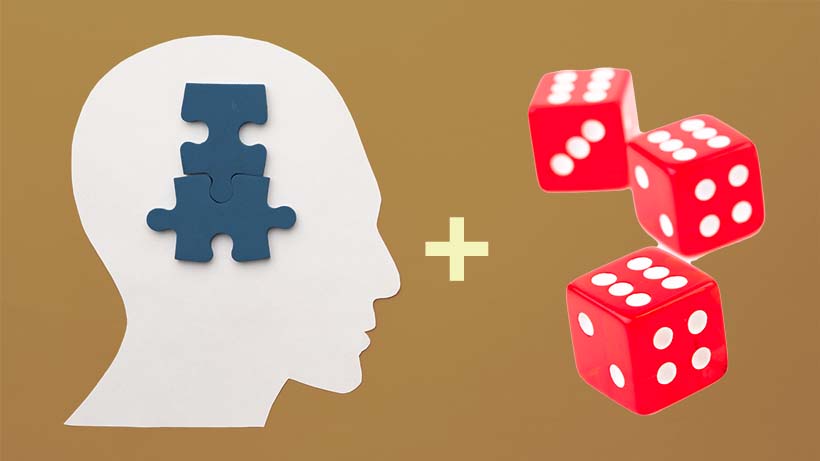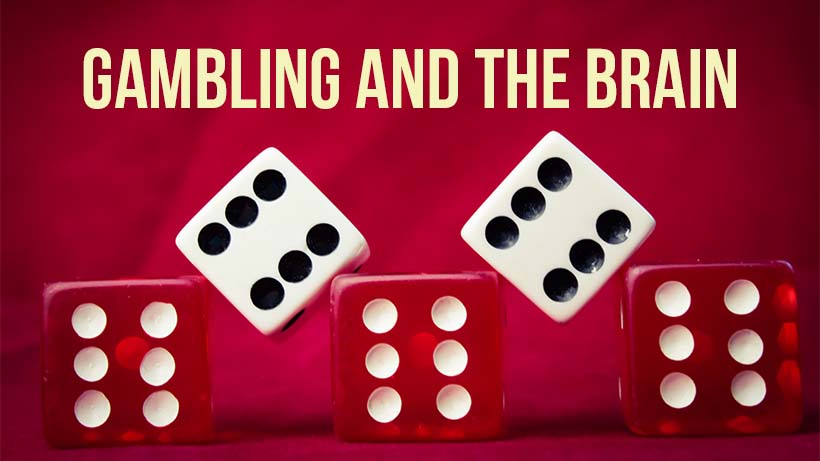The Science Behind the Effect of Gambling on the Brain
All people are different. We simply do not fit into one mold. This is the case in all aspects of life including gambling. Let’s look at how gambling can affect your brain and at how this could evoke different responses, some of which could trigger problematic gambling habits.
Dopamine is a chemical that is released in the brain. It is a neurotransmitter that helps you feel good and raises excitement levels. While we might think that we will only feel the thrill of excitement when we win, even when we lose, our bodies trigger a dopamine response.
Since the thrill and excitement are natural bodily responses to both winning and losing, some people struggle to differentiate which is which. This means that they are not likely to stop playing even when they are on a losing streak.

Do Our Brains Affect Our Gambling Habits?
As with everything else in life, our brains affect the way in which we react to things. This includes the ability to stop or continue an activity that may or may not serve us. The dopamine hit is what many are looking for when playing games for both real money and for free.
When it comes to gambling, other than the thrill of a dopamine hit, you can get many other benefits. The benefits include simple enjoyment while taking part in a fun activity, social connection and of course the chance to win money. All these rewards play a part in why we enjoy gambling. While these are all positives, most of us know when it is time to walk away when we lose or reach our self-imposed loss limits.
While we know how to practice safer play habits, there are others who do not have the same ability. They simply do not stop when they should. These players continue to look for a win. This phenomenon is well-known as chasing losses. Although not all these players will develop serious gambling addiction, it is possible for them to develop gambling problems.
Research into Gambling and the Brain
Brain Connections explains how gambling can turn into an addition for some people. To explain gambling addition in layman’s terms, they liken gambling to driving a fast car. You start out confident and excited and you have control over what you are doing.
The ventral striatum in your brain is like the reward hub. You can compare this to the gas pedal in the car analogy. Put your foot down and drive where you want to go. The pre-frontal cortex, or the top-down control network is somewhat like your car’s brakes. The pre-frontal cortex tells you when it is time to slow down. When there is a communication problem between these two areas of the brain, it is like you putting your foot on the gas even when you need to stop. This makes you go through red traffic lights or drive too fast and do other reckless things.
When this happens repeatedly, it enters the habit hub, or the dorsal striatum. Once it becomes a habit, it is no longer in your control. You might want to put your foot on the brakes, but don’t know how. In fact, you might even feel like you are no longer actively driving the car. While gambling starts out improving your mood, it slowly becomes something that is less fun but you still want to play. Your mood gets worse and it can even lead to depression. This is why it is important to set healthy boundaries and limits to avoid problem gambling, keep it healthy, fun and a happy experience.

Factors that Lead to Gambling Problems
It is so important to make sure that we develop good habits early on in life, the same goes for the way we approach gambling. If you see it as a fun activity, set limits, enjoy the social interaction, or the chance to take a break from the stresses of life, you are likely to be fine. So go ahead and enjoy gambling activities.
For those who are at risk of developing problems from gambling, there are a number of factors that can affect this. Studies into those who are at risk for developing problems with gambling, contributing factors include your cultural background, your socioeconomic status, available gambling resources and your environment. In addition to these, you also need to take into account whether there is substance abuse, mood disorders, psychological factors, social factors, cultural factors, and even your age.
If you do feel like you are developing a gambling addiction or perhaps the beginning of a problem with gambling, there is plenty help out there. Most online gambling sites post links to organizations that help players to cope with problems with gambling. Reach out for help if you see you are developing an unhealthy relationship with gambling.
































































































